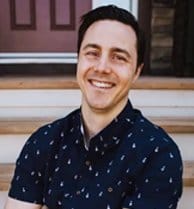I currently started a position working with youth who have been on the brink of homelessness and always have a heart for individuals who are homeless because I think about the parents of these individuals and the narratives of each one of them.
A quote from Bessel Van Der Kolk MD “How did an innocent baby grow up and is now homeless and doing intervenes drugs?” (2014)
Youth homelessness is a large-scale and complex problem. The population of youth who are homeless is diverse, and the numbers are high: 40,000 in Canada (Gaetz, Donaldson, Richter, & Gulliver, 2013). Many of these youth are dealing with mental health challenges.
· Major depression: 31%
· Bipolar disorder: 27%
· Posttraumatic stress disorder 36%
· Substance use disorders 40%.
· Of youth with a mental illness, 60% present with multiple diagnoses (Gaetz et al., 2013).
Unfortunately, many of these youth have a history of trauma that has never been dealt with and they have been labeled with a diagnosis rather than treating the actual underlying trauma. These traumatic experiences before becoming homeless may be abuse, neglect, chronic stress, discrimination, bullying, family breakdown, illness, and death.
Something to understand is that many of these statistics might not even capture fully the number of individuals who have dealt with significant trauma in their life before the age of 18.
It’s not to say that every individual who has a mental illness has experienced trauma, but the Adverse Childhood Experiences (ACE) studies of Felitti and Kaiser to mental health challenges are indicative of significance.
At my place of work, we have been giving clients the ACE score to fill out which has 10 questions that score adverse childhood experiences out of ten. Studies have shown that the higher the trauma, the more likelihood the person will experience mental health challenges, suicidality, unhealthy relationships, and heavier addictions.
Many health care professionals are unsure how to support individuals with mental health issues and even in a lot of cases question what is wrong with these individuals as some personalities may even be manipulative, suicidal, self-harming, abusive, and damaging to family, friends, and co-workers. Perhaps individuals can be extremely clingy on one hand and then sabotage the relationship on the other.
· Something to consider when we are looking at mental illness is to look at it from a biopsychosocial lens which means that we look from a holistic perspective. In the instance that much of the psychosocial elements of a person’s problem may be coming from the trauma they have experienced under the age of 18.
· Rather than asking or thinking, “What the hell is wrong with you” ask “What happened to you” and then do a good job at listening and validating.
· Something to consider is that these individuals may have been told their whole life that something is wrong with them, the last thing we should be saying is “what’s wrong with you.” What might happen with these individuals is they may take that message and internalize it towards themself (Van der Kolk, 2014).
· It isn’t always necessary to know how things develop for a person, but sometimes it can open our eyes and often help if we can understand the deeper story which then will make sense why a person acts the way they do.
Discussion point: eg. A person who grows up in an abusive environment where a person who is supposed to be a trusting caring adult such as their mother neglected and abused them.
What do you think the brain would do for this individual in order to help them survive in an environment like that?
Something we develop, as we grow up, is an internal working model or a blueprint for how we view the world, others, and ourselves. When children don’t grow up in environments where they can trust people, the brain literally prunes off the ability to trust.
We adapt to our environments- The brain is moving to protect us, so it will reorganize itself in a way that will help us as children adapt to the environment to Survive.
This means that if a kid is growing up in an environment where they cannot trust anyone, these ‘internal working models’ is what is wired into the brain. The areas of the brain that develop to give us a feeling of safety and security do not develop well/if at all because it has never known those things so the brain prunes them off.
This means that basically the need to survive and the message of “trust no one” might be what is embedded into the brain. So it might make sense why someone would want to cling close, but then push away or lash out, because it is protective.
One of the main points of emphasizing the developing brain and its ability to prune off those areas that are not relevant is to bring awareness to the importance of seeing behind the diagnosis and recognizing there is a person who may have gone through a hell of a lot.
Supporting someone who has gone through trauma may be difficult because we just don’t know what to do, and I think one of the best things you can do is just to show up for them. Maybe it just means sitting with them and crying with them, or holding a Kleenex for them.
I think often as therapists we can underestimate the power of relationships, kindness, compassion, and most of all empathy.
The other thought is of the importance of getting help if you have gone through adverse childhood experiences. We are so quick in our medical model world to want to get a diagnosis and take medications to “fix” our symptoms; however, there is a close correlation between trauma and mental health challenges.
Perhaps when you can get some solid help from a psychologist or a counselor, they can help lighten the load and make sense of a lot of your journey where you can find healing (Vander Kolk, 2014).
Finally, I think it is important to note that anyone who has dealt with difficult shit in their life will have the challenge of reorienting their brain and mind that has adapted to cope with the worst. It might be important in our healing journeys to revisit those ancient wells within us that we have developed into habits of mind and behavior that have helped us to survive. As we explore and get to know these parts, we can free ourselves of these extreme beliefs developed through trauma.




If you are unsure of which service area to book, you can simply book an individual or couples appointment and specify with your therapist in your intake what it is you are wanting to work on. Our categories are a way of helping explain our approach to different presenting issues. It is also not limited to these areas. Also if you are in need of immediate support please call the distress line or 811 to reach someone immediately. Thank you for visiting our site.